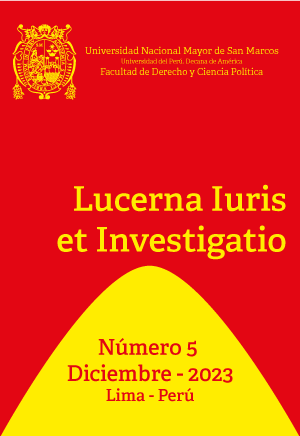Fight against corruption and culture: Brief reflection based on Guido Waisberg’s ideas
DOI:
https://doi.org/10.15381/lucerna.n5.27561Keywords:
Succession, Process, Rights, Procedural Succession, LegislationAbstract
Procedural succession is an essential component for the preservation of the right to effective judicial protection and efficiency in the use of judicial resources, fundamental aspects for the integrity of the legal system. In addition to reasons of a legal nature, procedural succession is based on economic reasons, since it prevents a considerable waste of procedural activity, since, both in the case of inter vivos and mortis causa transmission, succession allows the new holder of the rights over the litigious matter to take advantage of the activity developed by the deceased for the effectiveness or defense of his legitimate right, saving him from having to initiate a subsequent procedural instance.
The purpose of this research is to demonstrate the need for an amendment of article 108° of the CPC, in order to generate legal certainty and preserve the guarantees of due process and effective jurisdictional protection that must exist in any process, since, in the absence of a regulation on the lack of voluntary appearance of the third party acquiring the disputed right, judges have been forced to make interpretations, or worse, not to make them, simply rejecting the request of the affected party because such situation is not foreseen in the assumptions of article 108° of the Code of Civil Procedure.
Downloads
Published
Issue
Section
License
Copyright (c) 2023 Rosa Karina Salas Pachas

This work is licensed under a Creative Commons Attribution 4.0 International License.
THE AUTHORS RETAIN THEIR RIGHTS:
- The authors retain their rights to the work, trademark and patent, and also to any process or procedure described in the article.
- The authors retain the right to share, copy, distribute, execute and publicly communicate the article published in Lucerna Iuris et Investigatio (for example, place it in an institutional repository or publish it in a book), with an acknowledgment of its initial publication in Lucerna Iuris et Investigatio .
- The authors retain the right to make a subsequent publication of their work, to use the article or any part of it (for example: a compilation of their work, conference notes, thesis, or part of a book), provided that indicate the source of publication (authors of the work, journal, volume, number and date).






